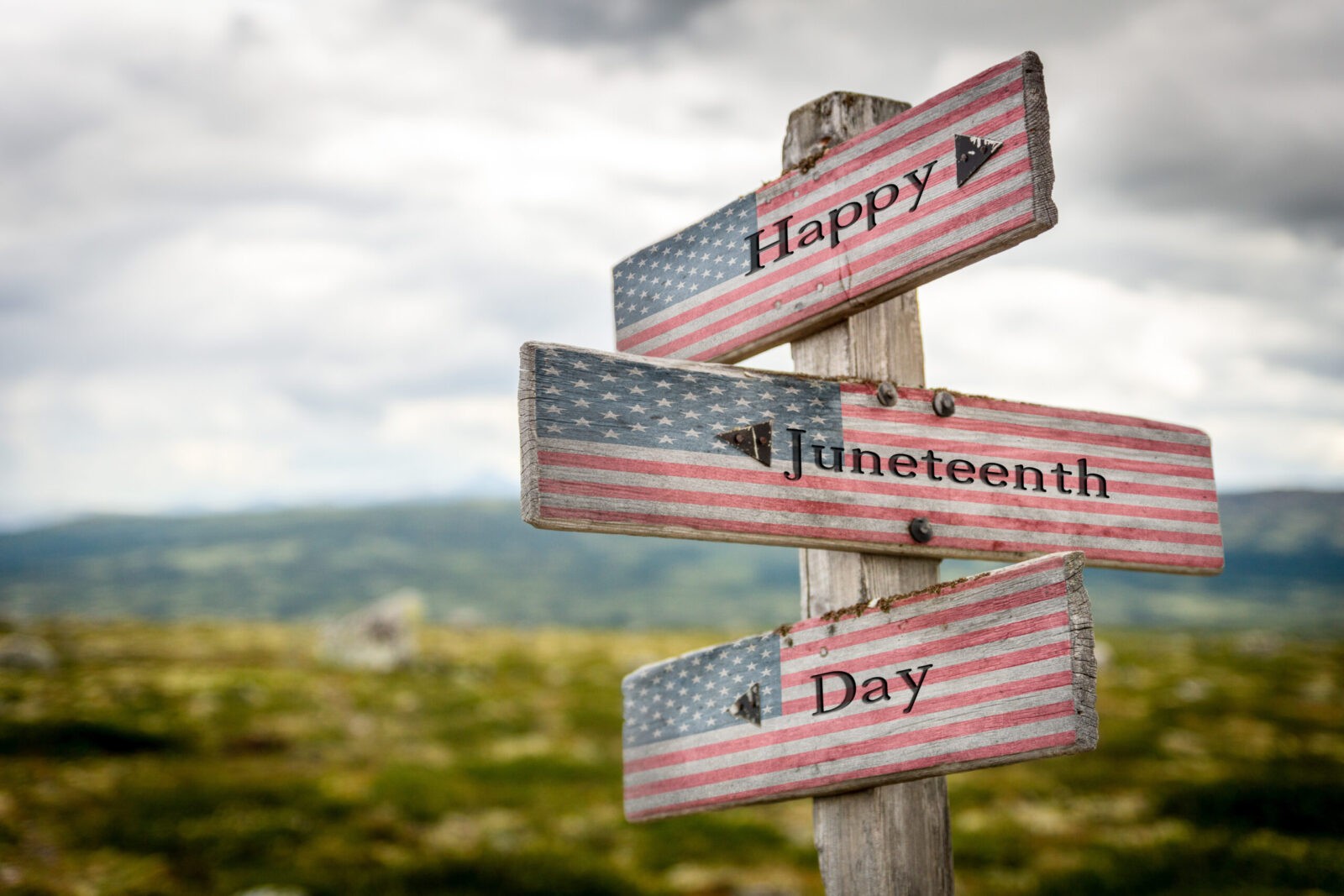June 18, 2020
Reflections from a Black Lawyer on Juneteenth
Education Justice Project Director, Texas Appleseed; ACS Austin Lawyer Chapter Leader

I knew that I wanted to be a lawyer early on in my childhood.
If you had asked me for the source of this career aspiration ten years ago, I likely would’ve referenced the John Grisham novels that I consumed as a kid. Then I would’ve told you about the inspiring example set by my aunt Joy, a solo practitioner based in Louisiana.
I became a lawyer at 25 and took great pride in fulfilling that dream - both for myself and my family. Now, with four years of practice behind me, I can stop and reflect more incisively on what it means to be a Black lawyer in the twenty-first century.
As a preliminary point, my 2020 self will be more forthcoming about why I became an attorney. It is a thought process that Black people have employed for nearly 250 years in this country and for more than 400 years on this land, all in an effort to survive: I wanted to become a lawyer to prove that I am worthy. To demonstrate that I am deserving of the accommodations I occupy, the work in which I engage, and the existence that is my own.
I became a lawyer to validate my bookish ways, to show that Black people can be attorneys, and to tell the world that I’m exceptional. Taking this reasoning to its logical conclusion, I should therefore be given what my ancestors were consistently denied.
Not surprisingly, I played right into the hands of respectability politics with this rationale.
By diving into my legal career and reading more about America’s deep-rooted investment in anti-Black racism, I learned how tenuous my true justification was.
Grappling with the works of writers like Isabel Wilkerson, Toni Morrison, and Ibram X. Kendi, I saw that the consistent denial of the full humanity of Black people was integral to every era of this country’s development. Despite our tenacity and ability to adapt within inhumane conditions, armed forces - whether white vigilantes or organized police departments - rose up to destroy any progress that had been made and slaughter entire communities of Black people.
I think of Black people across the South who sought and won elected office during Reconstruction, only to be thwarted by the Compromise of 1877 and the removal of federal troops from the South. I consider the circumstances of the prosperous Greenwood community in Tulsa, Oklahoma - burned to the ground in mere hours as Black adults and children were massacred by their white neighbors. I look back to the MOVE bombing in Philadelphia 35 years ago, and I recognize how all levels of the United States government have either been complicit in the racial violence inflicted upon Black people or have been the direct perpetrators of it.
In my work for two racial justice organizations in D.C. - the Lawyers’ Committee for Civil Rights Under Law and Advancement Project’s National Office - I witnessed how the school-to-prison pipeline and voter disenfranchisement laws attempt to relegate Black people to a subhuman category in present times. I tracked the legacies of centuries-old racist policies that operate to keep Black people away from decent housing, adequate health care, the ballot box, educational opportunities, and employment prospects. I heard from directly impacted people who fought to dismantle draconian laws and policies in their communities. I began to more fully understand how deep of a commitment this country has to white supremacy.
But, through all of this state-sanctioned violence and white domestic terrorism, at least I could proclaim that I’m an attorney?
Arriving at this moment - in the midst of a global pandemic and international uprisings against police violence - I feel compelled to reject the tenets of respectability politics even more forcefully. I am certainly determined to use my occupation on the quest to Black liberation, but my career definitely won’t be the thing that saves me.
Black people have done everything imaginable to prove our humanity; we shouldn’t feel any pressure to do anything else.
Despite that truth, I draw much inspiration from what feels like the present revolutionary moment. Black people find themselves alongside multiracial throngs of protesters - all speaking out against police violence and proudly shouting that Black Lives Matter. Local government bodies are taking significant steps to defund police departments, yielding to the pressure placed on them by organizers and community members for years. These notions fit squarely within the framework of prison industrial complex abolition, with the work of Black women like Dr. Angela Davis, Ruth Wilson Gilmore, and Mariame Kaba increasingly entering the public discourse.
Most encouraging of all, people continually acknowledge that the experiences of all Black people must be elevated. A historic march for Black trans lives occurred a day prior to the Supreme Court ruling that the protections of Title VII of the Civil Rights Act of 1964 extend to LGBTQ people. Such actions are critical in a moment where so many people are calling for a radical reimagining of public safety.
One outside of police, surveillance measures, and prisons. One where Black people, especially women and LGBTQ people, feel as though thorough systems of accountability are in place to address harms that may occur.
This Juneteenth, as I look toward the future with a sense of optimism, I take great joy in my individual journey as a Black person and attorney, as well as the collective sojourn of my people. I will continually push back against that urge to be respectable or otherwise perfect to fully engage with my humanity.
I thank the Black people who received word of their freedom in Texas 155 years ago for providing blueprints for a proper celebration and an on-going struggle for justice.




